- Home
- Colm Toibin
Mad, Bad, Dangerous to Know Page 14
Mad, Bad, Dangerous to Know Read online
Page 14
Having moved a number of times in the first two years of their marriage, the Joyces finally settled on Brighton Square in Rathgar, close to May’s brother William and his wife, Josephine, who would become an important figure in the lives of the Joyce children until her death in 1924. While John Stanislaus could tolerate Josephine, his relations with most of his wife’s family, including her brothers, did not improve. Stanislaus recounted that his father “pursued” his father-in-law “(and when the old man died his memory) as well as [his wife’s] family with an unrelenting hatred and unremitting virulent abuse that amounted to an obsession.”
Joyce’s job meant that he had to get to know the city. His rate collecting included not only streets close to where he lived but the more sparsely populated areas around the Phoenix Park and along the coast to the south of the city. The job, which began at ten o’clock in the morning and finished at four in the afternoon, involved a great deal of traveling with no supervision over how long he stayed talking in a certain house or how he distracted himself throughout the day. It was the perfect job for someone who was social and garrulous. Since headquarters were in Fleet Street in the city center, this meant that when work ended there were many public houses to choose between.
Besides some miscarriages, May Joyce had ten children. Between her marriage and her death in 1903, the family changed house as many times. The grandest place they lived was on Castlewood Avenue in Rathmines, a three-story, double-fronted building where they moved in 1884, having been joined by an uncle of John Stanislaus’s from Cork and a woman called Mrs. Conway, a devout Catholic, also from Cork, whom James Joyce would immortalize as Dante or Mrs. Riordan in A Portrait of the Artist as a Young Man. In this house, John Stanislaus would entertain the rising class of Parnellites and his musical friends. He and his wife, as a fashionable couple, would attend operas and recitals in the city.
Despite his job and his rents, John Stanislaus Joyce, even in the early years of his marriage, had difficulty living within his means, and was forced to remortgage some of his property in Cork and borrow money to supplement his income. In 1887, having taken out a loan using a Cork property as collateral, Joyce moved his family to Bray, close to where the Wildes had owned houses.
At work, Joyce was also beginning to have problems. The authorities were skeptical when he claimed to have been attacked in the Phoenix Park and robbed of the cash that he had collected. He was transferred to the city center, where it was easier to keep an eye on him and where he was often accompanied by an inspector. While he still enjoyed the freedom the job offered, he did not take any pleasure in the paperwork, which he often farmed out. Stanislaus reported that “he would have a couple of unemployed old clerks scribbling in his house from morning to midnight” when deadlines approached. Subsequently, he was transferred to the city’s docklands, including its busy red-light district.
When James Joyce was six, his parents sent him as a boarder to Clongowes Wood College, a posh school run by the Jesuits. Although his father had many friends and he and his wife were still involved in concerts and social outings, John Stanislaus’s temper was not improved by his drinking. In My Brother’s Keeper, his son recounted that in these years
at home he was a man of absolutely unreliable temper. How often do I remember him sitting at table in the evening, not exactly drunk—he carried his liquor too well then—but sufficiently so to have no appetite and to be in vile humour . . . In later years my mother told me that she was often terrified to be alone with him, although he was not normally a violent man . . . He would sit there grinding his teeth and looking at my mother and muttering phrases like “Better finish it now.” At one time she thought of getting a separation from him, but her confessor was so furious when she suggested it that she never mentioned it again.
John Stanislaus Joyce would remain throughout his life a staunch defender of Parnell, whose political career was coming to an end just as the Dublin Corporation Act was passed, which would allow the corporation to collect the rates itself, thus putting Joyce’s income as a rate collector in jeopardy. In the 1892 elections, after the death of Parnell, Joyce offered to work for the Parnellite candidate in Cork, telling his workplace that he was ill so that he could travel south. When he was spotted in Cork, he was reported to the collector general, which did not help his case in a position that was increasingly precarious.
Even though he still had his job, and despite the income from the properties, his finances became even more difficult, with moneylenders in pursuit and with rent overdue on the house in Blackrock where the family had moved from Bray. There were court judgments against him. Bailiffs seized his furniture, leaving him only the portraits of his parents and grandparents that his son James would eventually have transported to Trieste and proudly display.
Late in 1892 or early in 1893, Joyce was forced to move his family to the area around Mountjoy Square and the North Circular Road on the north side of Dublin. On January 1, 1893, almost all of his colleagues lost their jobs as rate collectors, but were offered a generous severance package: three-quarters of their annual salary as an annual pension, irrespective of how long they had served. Because of his poor record, however, this did not apply to John Stanislaus Joyce, who was at first offered nothing and then half of what his colleagues were getting. This amounted to only one-third of his former wage.
Thus at the age of forty-four, Joyce was living in a sort of aftermath. Having basked in the glory that came from being a supporter of Parnell, he was now left to linger in the dullness and rancor that came once the Irish Parliamentary Party had split. And, once more, he had to find odd jobs as an accountant or financial clerk or take any other work that came his way. At this stage, he had nine children to support. By the end of 1893, having remortgaged much of it and borrowed heavily on the strength of it, he was forced to sell all the property that he had inherited in Cork.
His sons James and Stanislaus were sent first to O’Connell School, run by the Christian Brothers, close to where they lived in Dublin. But soon Father Conmee, a Jesuit priest who had known James at Clongowes and who would be rewarded by a mention in Ulysses, arranged for them to attend the posher Belvedere College, a Jesuit day school, also close to where they lived.
*
John Stanislaus Joyce was perhaps unlucky that he had lost his job, and unlucky too that he did not know how to manage his finances, and unlucky also that he had so many children to feed, but his worst piece of luck may have been the brooding presence in his household throughout his fall from grace of his second living son, Stanislaus, who charted what happened to the family with bitterness and in some detail in two books, both published after his death: My Brother’s Keeper in 1958 and The Complete Dublin Diary of Stanislaus Joyce, published in 1971.
In the first of these, Stanislaus recalled the household once his father had lost his job and sold his properties:
My father was still in his early forties, a man who had received a university education and had never known a day’s illness. But though he had a large family of young children, he was quite unburdened by any sense of responsibility towards them. His pension, which could have taken in part the place of the property he had lost and been a substantial addition to an earned income, became his and our only means of subsistence.
Stanislaus wrote that the nine addresses where they lived over a period of at most eleven years, “besides representing a descending step on the ladder of our fortunes, are each of them associated in my memory with some particular phase of our gypsy-like family life.”
He described the method in his father’s fecklessness:
Whenever a landlord could not put up with him any longer and wanted to get rid of him, [he went] to the landlord [to] say that it would be impossible for him with his rent in arrears to find a new house, and that it was indispensable that he should be able to show the receipts for the last few months’ rent of the house he was living in. Then the landlord, to get a bad tenant off his hands, would give him receipts for the un
paid rent of a few months, and with these my father would be able to inveigle some other landlord into letting him a house. In these auspicious circumstances we moved into a smaller house in a poorer neighbourhood.
Stanislaus noted all the drunkenness and the outrages, including the scene where John Stanislaus Joyce “made a vague attempt to strangle” his wife:
In a drunken fit he ran at her and seized her by the throat, roaring, “Now, by God, is the time to finish it.” The children who were in the room ran screaming in between them, but my brother, with more presence of mind, sprang promptly on his back and overbalanced him so that they tumbled on the floor. My mother snatched up the two youngest children and escaped with my elder sister to our neighbour’s house.
As James Joyce made his way through Belvedere College and then to University College Dublin and later escaped to Paris, Stanislaus kept a firm watch on his father. On September 26, 1903, for example, he wrote of him in his diary:
He is domineering and quarrelsome and has in an unusual degree that low, voluble abusiveness characteristic of the Cork people when drunk . . . He is lying and hypocritical. He regards himself as the victim of circumstances and pays himself with words. His will is dissipated and his intellect besotted, and he has become a crazy drunkard. He is spiteful like all drunkards who are thwarted, and invents the most cowardly insults that a scandalous mind and a naturally derisive tongue can suggest.
He noted also that “when Pappie is sober and fairly comfortable he is easy and pleasant spoken though inclined to sigh and complain and do nothing. His conversation is reminiscent and humorous, ridiculing without malice, and accepting peace as an item of comfort.”
In April 1904, he noted: “When there is money in this house it is impossible to do anything because of Pappie’s drunkenness and quarrelling. When there is no money it is impossible to do anything because of the hunger and cold and want of light.” In another entry in the same month, he wrote: “Pappie is a balking little rat. His idea when he has money is that he has power over those whom he should support, and his character is to bully them, make them run after him, and in the end cheat them of their wish. In his face this is featured in his O’Connell snout.” (John Stanislaus’s mother was an O’Connell.)
In July 1904, he wrote about the tension between his father and James:
Pappie has been drunk for the last three days. He has been shouting about getting Jim’s arse kicked. Always the one word. “O yes! Kick him, by God! Break his arse with a kick, break his bloody arse with three kicks. O yes! Just three kicks!” And so on through torturous obscenity. I am sick of it, sick of it.
On August 6, he noted that “there is no dinner in the house.” His diary ends in January 1905. In its place, his younger brother Charlie kept a diary beginning in May that year, a diary that made its way to the library of Cornell University, and is quoted by John Wyse Jackson and Peter Costello in their biography of John Stanislaus Joyce. On May 26, 27 and 28, Charlie Joyce noted that his father was drunk, and again on May 31 and June 1, 2, 13, 14 and 15. And on June 24: “Pappie home to dinner very drunk: shouting, swearing etc. Pappie has thrown his dinner about the floor: Baby [the youngest of the family] white as a sheet: Pappie gone out again: home again: sleeping off some of the drunk.” Another entry notes that one sister pawned her dress as there was no dinner.
By this time, Georgie Joyce, three years younger than Stanislaus and five years younger than James, had died a slow and painful death at the age of fourteen, and May Joyce had died aged forty-four. Perhaps of all the passages about their father by the Joyce sons, the section in My Brother’s Keeper about their mother’s deathbed, to which James had been summoned from Paris, is the most harrowing:
My father was on his good behaviour for the first few weeks but as the illness dragged on he became unreliable and had to be watched. One evening towards the end, my father came home “screwed,” as Aunt Josephine called it, after having drowned his sorrows copiously with various friends, and went into my mother’s room. Besides my aunt, my brother [James] and I were both there. My father asked some perfunctory question, but it was evident that he was in vile humour and itching to say something. He walked about the room muttering and then, coming to the foot of the bed, he blurted out: “I’m finished. I can’t do any more. If you can’t get well, die. Die and be damned to you!” Forgetting everything, I shouted “You swine!” and made a swift movement towards him. Then to my horror I saw that my mother was struggling to get out of the bed. I hurried to her at once, while Jim led my father out of the room. “You mustn’t do that,” my mother panted. “You must promise me never to do that, you know that when he is that way he doesn’t know what he is saying.”
Stanislaus Joyce left for Trieste to join his brother, who had gone to live there. Charlie went to Boston for a while and then returned to Dublin with his wife and raised a large family in the city.
The girls in the Joyce family kept no diaries, as far as we know, and they wrote no memoirs, but as soon as they could, two of them went to Trieste, one returning soon afterwards. One joined a convent and spent the rest of her life in New Zealand. The others found work in Dublin, and, as soon as possible, they left home. Some of them had very little to do with their father again and felt a deep anger against him. He had blighted their lives.
Once his youngest daughter died at the age of eighteen in 1911, according to his biographers, John Stanislaus Joyce “could no longer endure living with his daughters and their reproaches, spoken and unspoken. His relations with them had become actively hostile in all directions.”
From 1920 until his death in 1931, John Stanislaus Joyce lived alone in a boardinghouse where he maintained, it seemed, cordial relations with the landlady. For the last nineteen years of his life he did not see his son James, since he did not return to Ireland, nor indeed did Stanislaus see any reason to come back from Trieste to visit his father in old age. All that was left in his room when the old man died, the landlady’s husband reported, was “an old suit of clothes, a coat, hat, boots and stick” and a copy of his son’s play, Exiles.
*
It would be easy then to consign John Stanislaus Joyce to the position of one of the worst Irish husbands and worst Irish fathers in recorded history. But because James Joyce wished to, or sought to, deal with his father’s legacy and his father’s life in his work, and because he had moved away from him and lived with his memories, another picture emerges. Instead of actively and openly killing his father, James Joyce sought not only to memorialize his father but also to retrace his steps, enter his spirit, use what he needed from his father’s life to nourish his own art.
In his introduction to My Brother’s Keeper, T. S. Eliot remarks that the book “has the quality of candour which reminds me of Gosse’s Father and Son.” Stanislaus’s memoir has a raw sense of grievance, at times against both James and his father. It should have been possible, then, for a writer as talented and determined as his brother to have made an entire career out of his anger at his father, to have forged in the smithy of his soul a portrait of his country in the guise of his drunken and wayward father, which the world would have assented to and recognized, while feeling his pain.
There is something radiant and oddly magnificent, however, in Joyce’s refusing this temptation, in deciding that he had other onions to fry.
But this refusal can be seen also as an aspect of his single-mindedness. Added to this, he might not have suffered as much as his other siblings. In describing his father’s drunken antics in My Brother’s Keeper, Stanislaus noted:
My brother was less affected by these scenes than I was, though they certainly influenced his attitude towards marriage and family life . . . That attachment to his father, which was to be one of the dominant motives in his character, remained unchanged. When he went up to Clongowes, the home he left was moderately prosperous and happy. He came back to it when a holiday atmosphere prevailed at Christmas and, as well as I remember, at Easter, and during the long summer vacatio
n . . . As he remained in college until he was almost ten, he knew only the more gracious aspect of our family life, the more amiable side of my father’s character.
Later, he noted, James Joyce, while at school in Dublin, would spend the evenings reading in his room, paying no attention to his father or anybody else. He also remarked that “justice towards the characters of his own creation, or imaginative re-creation, became an artistic principle” with his brother.
There is an interesting moment in Stanislaus’s diary where he, too, attempts to do justice to the father that he generally loathes. He notes that his father’s relationship with him and his brother is something he misses in how fathers relate to their sons in other households. “I think it is this,” he wrote, “that he wishes and confidently expects that his sons will be different from the sons of other people, even—and this shows a yet higher mind—more distinguished than he, in his own judgment.”
In the margins, he added:
Moreover, he has always treated us with a kind of equality with an item or two of authority, and did not think it fit to do away with all ordinary politeness in dealing with us. He has tacitly respected our privacy and has not treated us with that contemptuous inconsiderateness, as towards animals, by which fathers try silently to insist on their absolute superiority. He has not been able to be a senseless bully, and we have no reason not to respect him for what he is—our father.
It is important to note that this is a diary entry for July 1904 rather than something conjured up in retrospect to explain his brother’s genius.

 The Magician
The Magician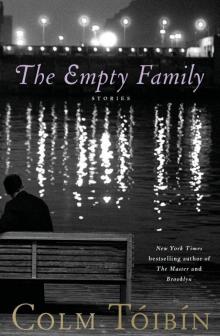 The Empty Family (v5)
The Empty Family (v5)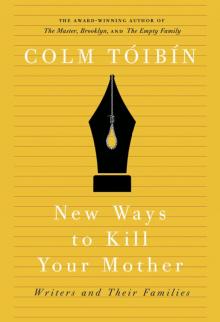 New Ways to Kill Your Mother
New Ways to Kill Your Mother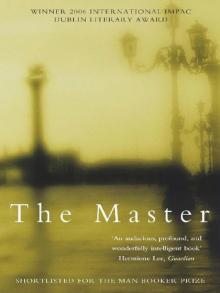 The Master
The Master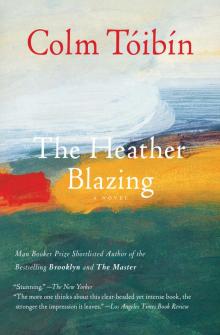 The Heather Blazing
The Heather Blazing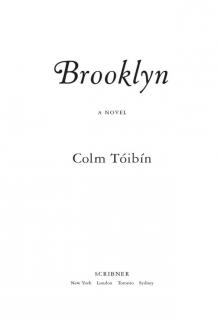 Brooklyn
Brooklyn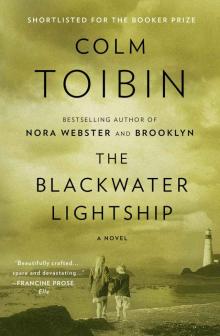 The Blackwater Lightship
The Blackwater Lightship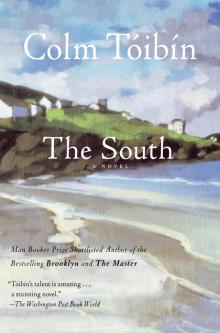 The South
The South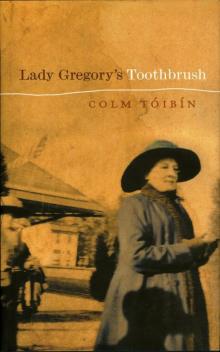 Lady Gregory's Toothbrush
Lady Gregory's Toothbrush House of Names
House of Names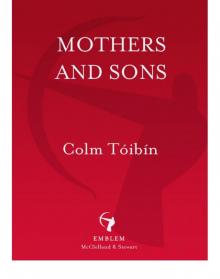 Mothers and Sons
Mothers and Sons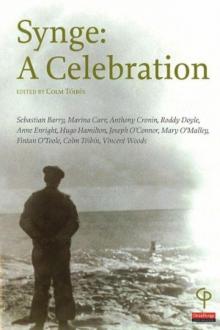 Synge
Synge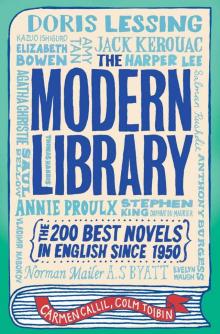 The Modern Library
The Modern Library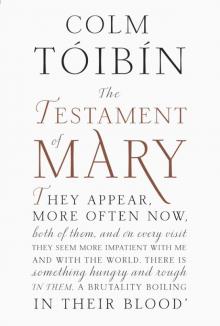 The Testament of Mary
The Testament of Mary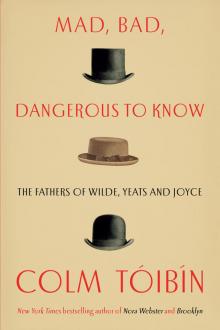 Mad, Bad, Dangerous to Know
Mad, Bad, Dangerous to Know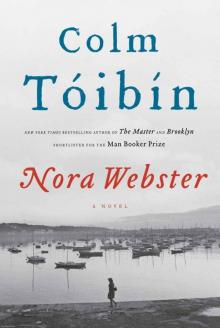 Nora Webster: A Novel
Nora Webster: A Novel